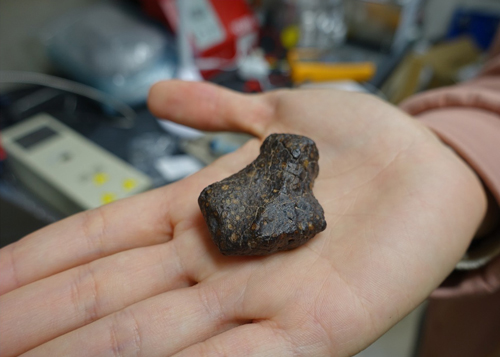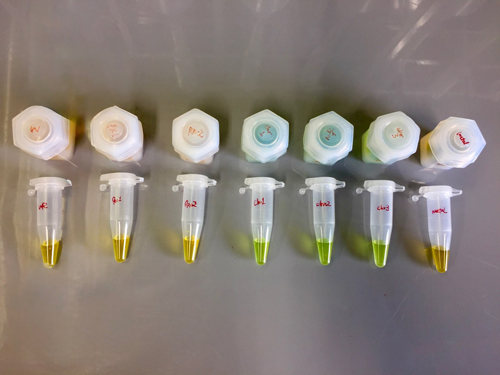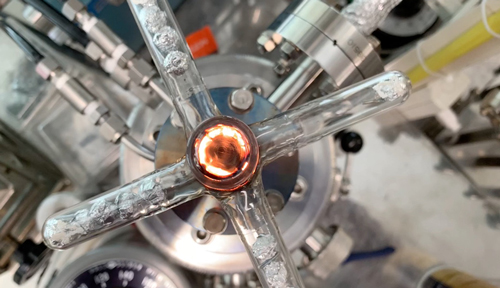- HOME
- Research
- Researcher's Profile
- Yuki HIBIYA
Researcher's Profile

- Associate Professor
- Yuki HIBIYA
- Cosmic and Planetary Material Evolution
- yuki-hibiya
 igcl.c.u-tokyo.ac.jp
igcl.c.u-tokyo.ac.jp
- URL
Biography
| March 2019 | PhD, Department of Earth and Planetary Science, Graduate School of Science, University of Tokyo (UTokyo) |
|---|---|
| April 2019 | JSPS Research Fellow for Young Scientists (PD), Japan Agency for Marine-Earth Science and Technology (JAMSTEC) |
| June 2021 | Assistant Professor, Department of General Systems Sciences, Graduate School of Arts and Sciences, UTokyo |
| July 2022 | Assistant Professor, RCAST, UTokyo |
| December 2024 | Associate Professor, RCAST, UTokyo |
Research Interests
All the matter that makes up our bodies and our planet comes from stars that exploded in the space before the formation of our solar system.
Meteorites serve as time capsules, preserving the primordial materials created by these stars. In contrast, Earth's rocks record the evolution of solar system materials through planetary processes. By comprehensively comparing and analyzing the meteorites and the Earth's rocks, we can unravel the formation mechanism of the Earth and the Solar System over a period of 4.5 billion years.
We are investigating the formation and evolution of the solar system by deciphering the information recorded in planetary materials. This is achieved through a combination of mineralogical analysis and isotopic analysis using mass spectrometry. We are also participate in international planetary exploration, and contribute to the future of space exploration in the field of planetary science.

- fig.1. Primordial meteorite preserving information on the early solar system

- fig.2. Minerals in meteorites dissolved in acid to extract elements for isotope analysis

- fig.3. Meteorites heated in a furnace to extract gas for noble gas isotope analysis
Keywords
Early Solar System Evolution, Meteorite, Isotope Geochemistry and Cosmochemistry, Mass spectrometry, Chronology
Educational Systems
- Department of Advanced Interdisciplinary Studies, Graduate school of Engineering
- Department of Earth and Planetary Science, Graduate School of Science

